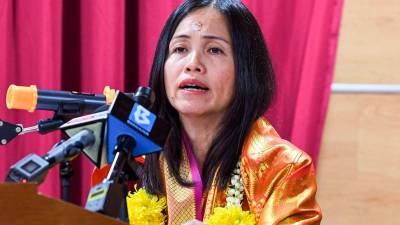KUALA LUMPUR: The role of media practitioners, particularly journalists, is becoming increasingly important in curbing the spread of fake news, which is becoming more prevalent, especially through social media, said Deputy Minister of Communications Teo Nie Ching.
She said trained journalists know their roles and responsibilities as Malaysian citizens to verify the authenticity of any news, thus ensuring the public can differentiate between fake and real news.
She added that, as of Aug 1, the Malaysian Communications and Multimedia Commission (MCMC) had requested 16,110 fake news content be taken down, which is an alarming increase compared to the 5,367 cases in 2023 and 17,245 cases in 2024.
“Scammers are now increasingly clever in using artificial intelligence (AI) to generate fake videos and voices to deceive victims,” she said at the launch of the 2025 Malaysian Tamil Media Organisation Annual General Meeting here.
In addition, she said the public is easily duped when exposed to unverified information that is repeatedly shared across various social media platforms until it is eventually accepted as true.
She cited the case of Zara Qairina Mahathir, which went viral after the Form One student died due to alleged bullying in school.
“Social media was flooded with various accusations and fake information, including claims that she was put into a washing machine for two hours. Although police confirmed a few days ago that it was fake news, I believe many still think it actually happened.
“So, this trend is unhealthy and dangerous if it is not curbed. It can cause public anxiety, especially since it is related to the safety of school students,” she said.
Zara Qairina was confirmed dead at the Queen Elizabeth I Hospital, Kota Kinabalu, Sabah, on July 17 after being admitted to the hospital after being found unconscious in a drain near the SMKA Tun Datu Mustapha dormitory, Papar at 4 am on July 16.
In addition, Teo said the MADANI Government will continue implementing initiatives to combat fake news by introducing the Artificial Intelligence Fact-check Assistance (AIFA) chatbox by MCMC, which can analyse messages in various languages, including Malay, Mandarin and Tamil.
She added that as of July 31, AIFA had received 142,257 messages, averaging 769 fact-checks a day, proving its effectiveness as a rapid tool for information verification and raising digital safety awareness. – Bernama
